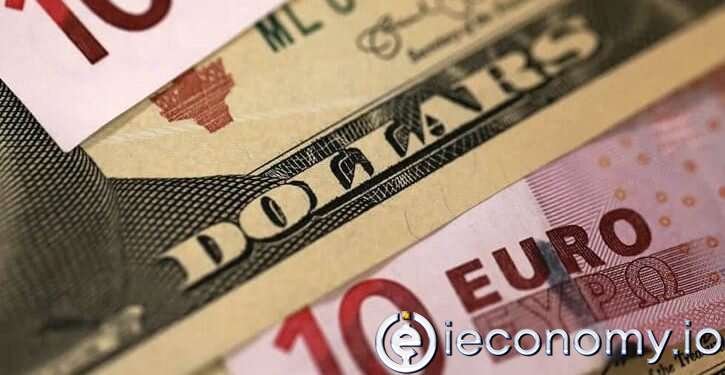9211
0
New Forecasts for the Euro-Dollar Parity
World banking giants Morgan Stanley, Nomura and Societe Generale published new forecasts for the Dollar-Euro parity. Experts...

Yazar: James Gordon
Yayınlanma: 24 Ağustos 2022 03:19
Güncellenme: 2 Mart 2026 19:55
New Forecasts for the Euro-Dollar Parity
World banking giants Morgan Stanley, Nomura and Societe Generale published new forecasts for the Dollar-Euro parity. Experts stated that the decline in the exchange rate may continue.
The dollar moved ahead of the euro, which it had been behind for years. While the euro/dollar parity tested the 1.0000 level again after a break of about 1 month, the increasing expectations that the US Federal Reserve (Fed) will raise interest rates by 75 basis points at the September meeting led to this movement. World banking giants made predictions. With the euro-dollar exchange rate below the 1 level, attention in the market turned to how far the decline in the parity would continue. Global banking giants revised their forecasts and estimated that the decline could accelerate until the end of the year. The dollar strengthened. As a result of the continuation of this strong course and the increase in economic risks in Europe, the Euro-Dollar parity fell below 1 yesterday. In the morning hours of yesterday, the pair recorded below 1 level with 0.999 for the first time since July 14. While the Euro, the common currency of the European Union, moved at its lowest levels in the last 20 years, the dollar index, which measures the dollar against major currencies, rose 0.7 percent to its highest peak since July 15. Morgan Stanley, an American investment bank based in New York City, US, said the euro could fall to $0.97 this quarter, a level not seen since the early 2000s. Nomura, the Japan-based financial holding company, noted that the euro could fall to 0.975 dollars per 1 euro by the end of September. "The market may be looking for 0.95 or lower," the bank, which is located in Tokyo's Chūō district, said, adding that the pressure on energy supply continues and the risk of disruption increases. Paris-based Societe Generale, one of Europe's main financial firms, said: "The late summer has seen the euro come under renewed pressure, partly due to the rise in the dollar and partly due to the risks facing the European economy."Euro-Dollar Equalization
Euro-dollar parity experienced intense pressure. While the energy crisis and supply chain problems remained at the center of the agenda, September natural gas futures prices traded in the Netherlands continued to rise. In addition, the German Central Bank announced yesterday that the likelihood of a recession in the country's economy is increasing and inflation could reach double digits at 10 percent in the fall. The possibility of a higher-than-expected rate hike by the Fed, the raw material crisis in Europe due to the intense seasonal drought and energy problems have put pressure on the euro-dollar parity.
İLGİLİ HABERLER





European stocks soared and focus shifted to German retail sales after Powell's speech!

Forex Signal For TRY/USD: Inflation Slowdown in November.

Forex Signal For GBP/USD: Bullish Trend Still Not Breaking While Recovery Continues.

Forex Signal For EUR/USD: Starry US Data Points to Higher Fed Increases.

Forex Signal For BTC/USD: Downside Continues as Bitcoin Recovery Moves Less.
En Popüler Haberler
Yorum Yap
Yorumlar
Henüz yorum yapan yok! İlk yorumu siz yapın...